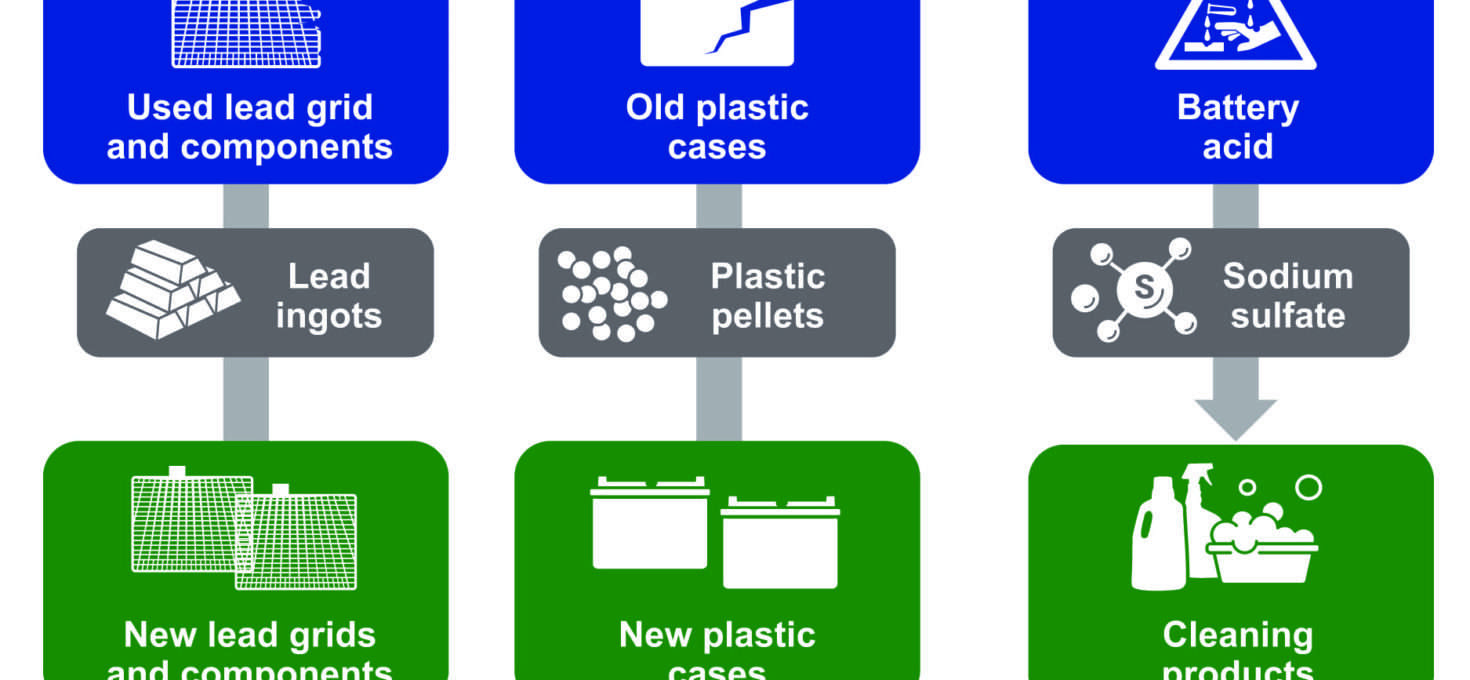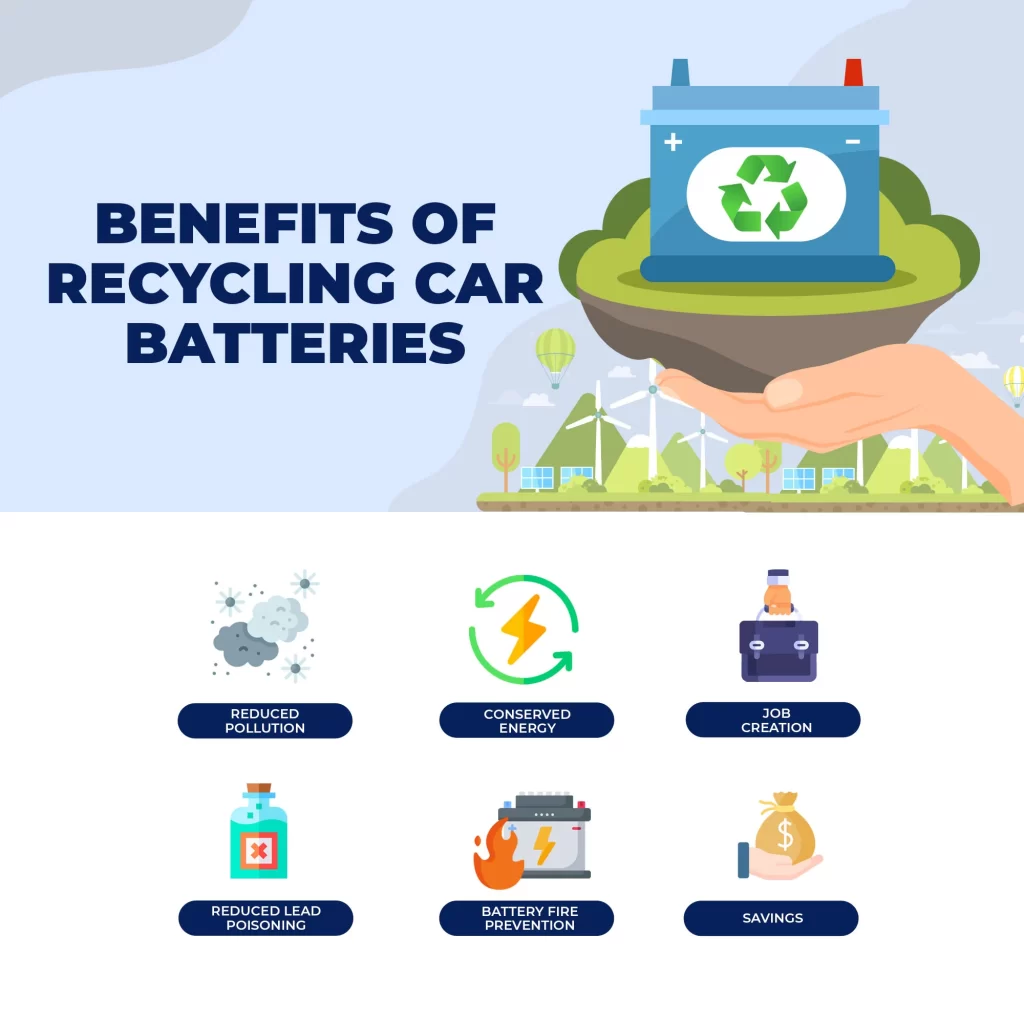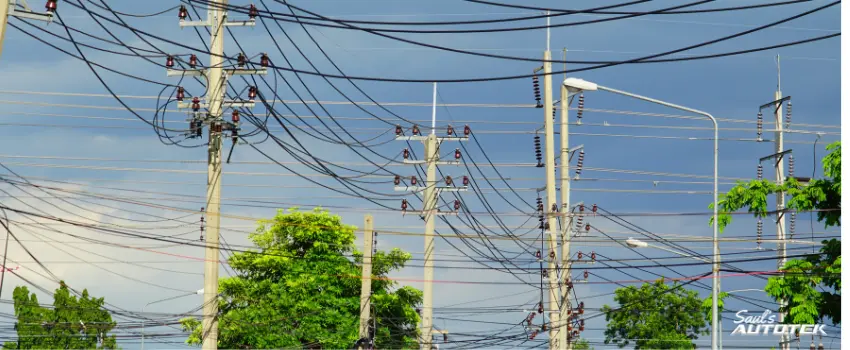The car battery is one of the most important components of your vehicle. It provides the electricity needed to start the engine, turn on the lights, power the infotainment system and other electronic components. However, as we all know, it has a limited lifespan and needs to be replaced after a few years.
If you’re unaware of how to dispose of car batteries properly, then you could unknowingly be contributing to the further degradation of the environment. That’s because batteries contain toxic chemicals that can pollute the soil and waterways, posing serious health hazards.
If you want to know how you can safely dispose of used up car batteries, continue reading. This blog will not only show you the proper way to dispose of old car batteries, it also highlights the benefits of doing so.
Are car batteries recyclable?
Yes, they are! And doing so actually offers a lot of benefits. Recycling car batteries involves the collection of used batteries from various sources, sorting them based on their composition, and breaking them down into their constituent parts, such as lead, plastic, and acid. These materials are then purified and reused to manufacture new batteries, reducing the need for new materials and preventing more hazardous waste from doing significant damage to the environment.
Benefits of Recycling Car Batteries
Other than protecting nature, car battery recycling carries economic benefits. It can create job opportunities and generate revenue. Below is a quick rundown on some of the benefits if you choose to recycle car batteries:
1. Reduced Pollution
Car batteries contain a variety of harmful chemicals, including lead and sulfuric acid. These toxic chemicals can seep into the soil and water supply when a battery is improperly disposed of, leading to pollution and environmental damage.
2. Conserved Energy
The production of new car batteries requires a significant amount of energy, as does the mining and processing of the materials used to make them. Through car battery recycling, much energy can be saved, especially lead-acid batteries, since more than 95 percent of its contents are recyclable according to the Battery Council International.
3. Job Creation
The recycling industry is a major employer worldwide, providing jobs for millions of people. By recycling car batteries, more jobs can be created, and this can help support local economies and communities.
4. Fire Prevention
Improperly disposed of car batteries can be a major fire hazard. When the acid in the battery comes into contact with metal or other materials, it can cause a spark that can ignite flammable materials. When you recycle car batteries, the risk of battery fires can be significantly reduced.
5. Reduced Lead Poisoning Risks
Lead is a toxic metal that can cause a range of health problems, including developmental delays, behavioral problems, and learning difficulties. When car batteries are thrown away improperly, the lead they contain can leach into the soil and water supply, increasing the risks of lead poisoning. This can be effectively prevented when car batteries are recycled.
6. Savings
By reclaiming valuable materials from car batteries, you can reduce the need for new materials that have to be extracted. This can help lower production expenses significantly.
How To Recycle Car Batteries
To reduce the impact on the environment, it’s important that car batteries are reused properly. Here are the steps to follow when recycling car batteries:
1. Remove the battery.
From the car, take out the used battery. When doing so, make sure that you wear gloves and goggles to protect yourself from any acid or other harmful substances that could be present.
2. Store the battery.
Once the battery has been removed from the car, place it in a cool and dry place, preferably in a plastic container. Also, make sure that the battery is kept away from any sources of heat, so sparks can be avoided.
3. Visit a recycling center.
When you have saved a few used batteries, take these to a recycling center where they are being accepted. Many auto parts stores, scrap yards, and recycling facilities usually welcome them.
4. Observe the process.
If permitted, you can watch how car batteries are recycled. The process involves breaking down the battery into its basic parts, separating those which can be reused. Lead and plastic are the components that are often recycled. The lead content is melted down and used to make new batteries, while the plastic portion is reprocessed and used to produce new products.
Key Takeaway
Car battery recycling provides a wide range of benefits to the environment and to people, from reducing pollution to creating jobs. As the world becomes more environmentally conscious, recycling is likely to become an increasingly important part of many industries, including the automotive business.
Still, there’s nothing wrong with buying a new battery for your car, especially if the old one is no longer performing well. To ensure that your new battery is installed correctly, visit a reputable car repair shop where this particular service is being offered.
Get prompt and accurate battery diagnosis from Saul’s Autotek.
When your car battery suddenly stops working, your entire driving experience gets affected. This could mean you have to get a replacement, but to be sure, visit Saul’s Autotek and we’ll find out what’s wrong.
If we find that you need a new car battery, our service for battery replacement in Castle Rock is what we’ll offer you. We have certified and fully-trained technicians who will be on hand to assist you. Call us today so you can continue your driving journey.





